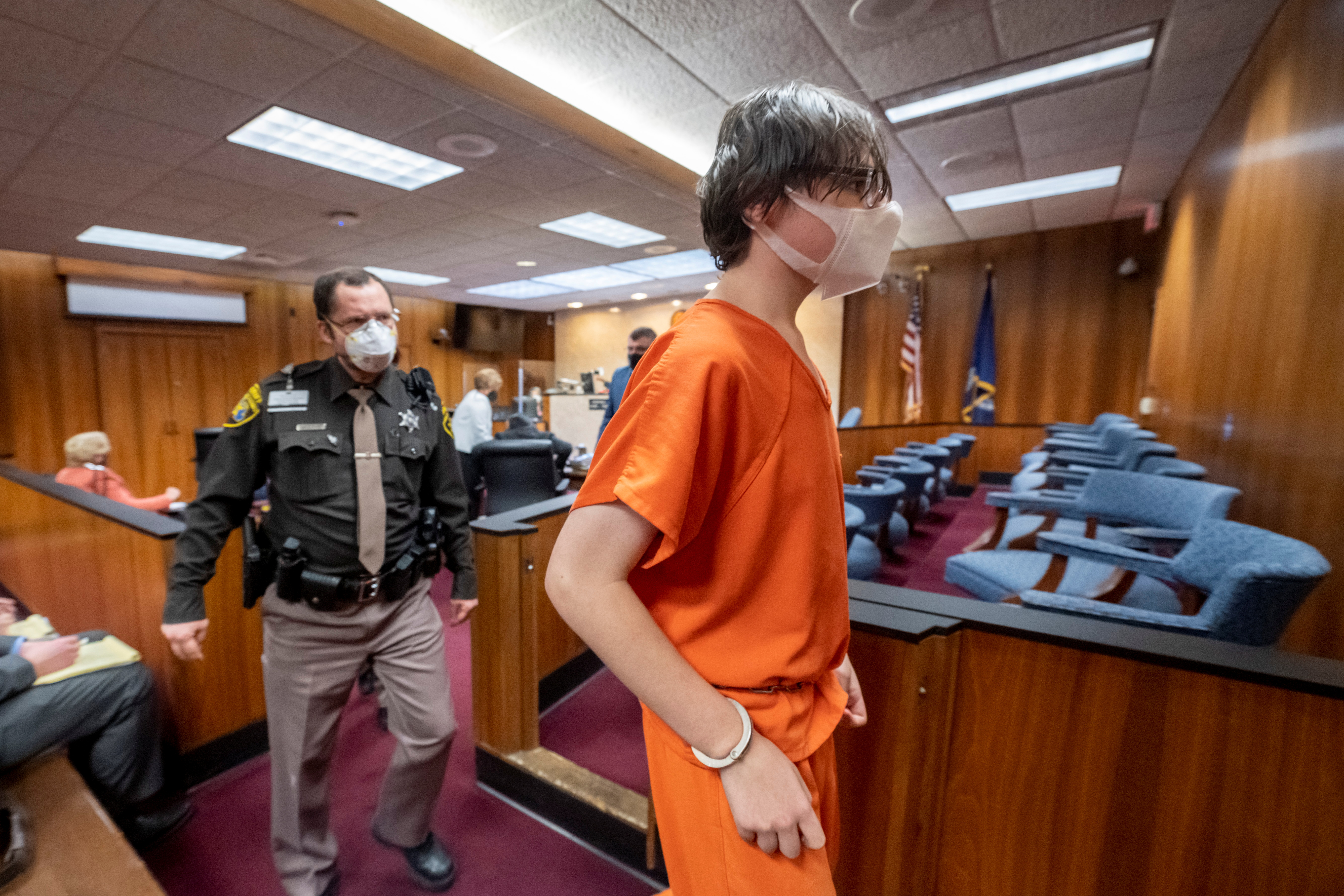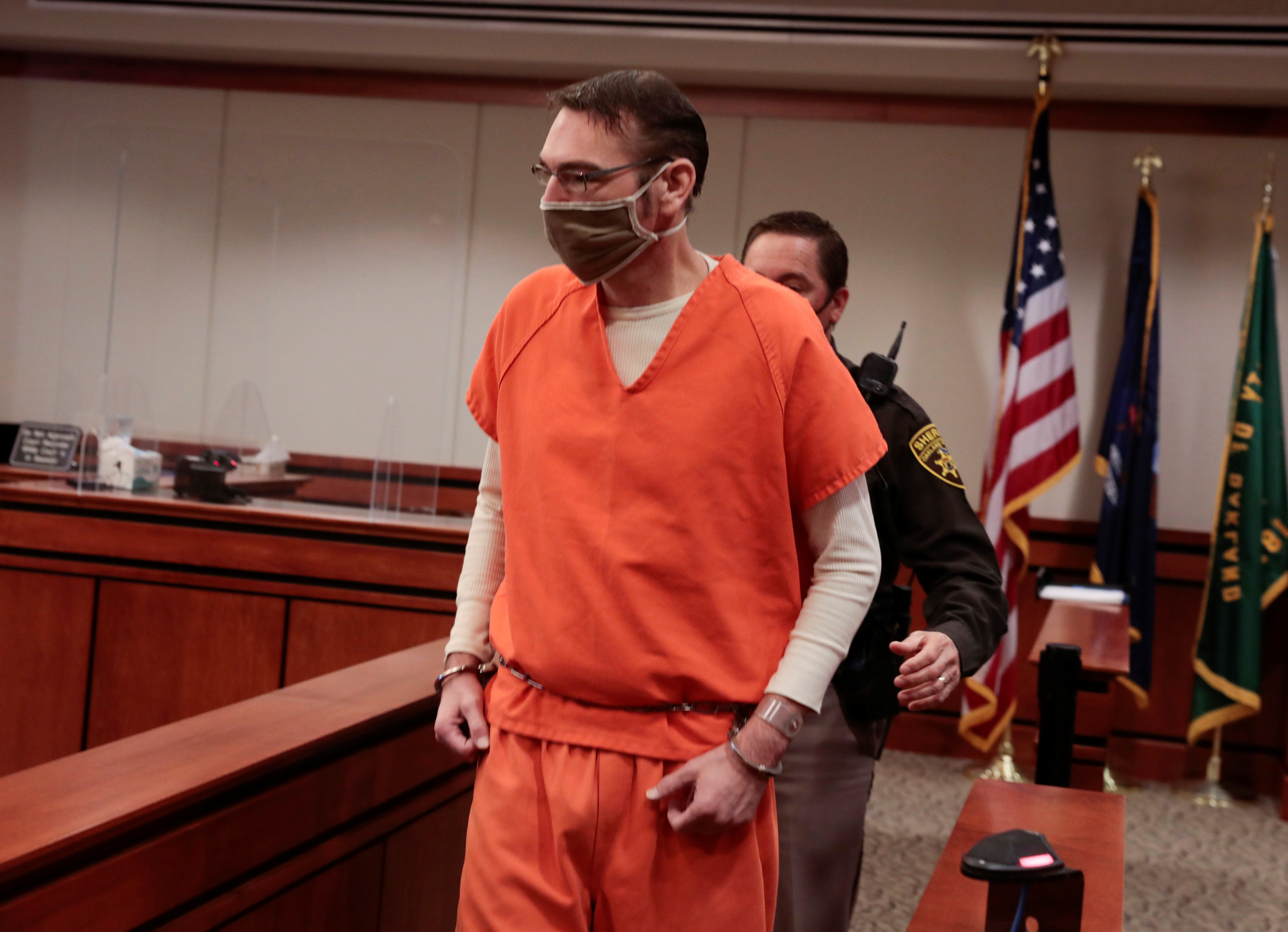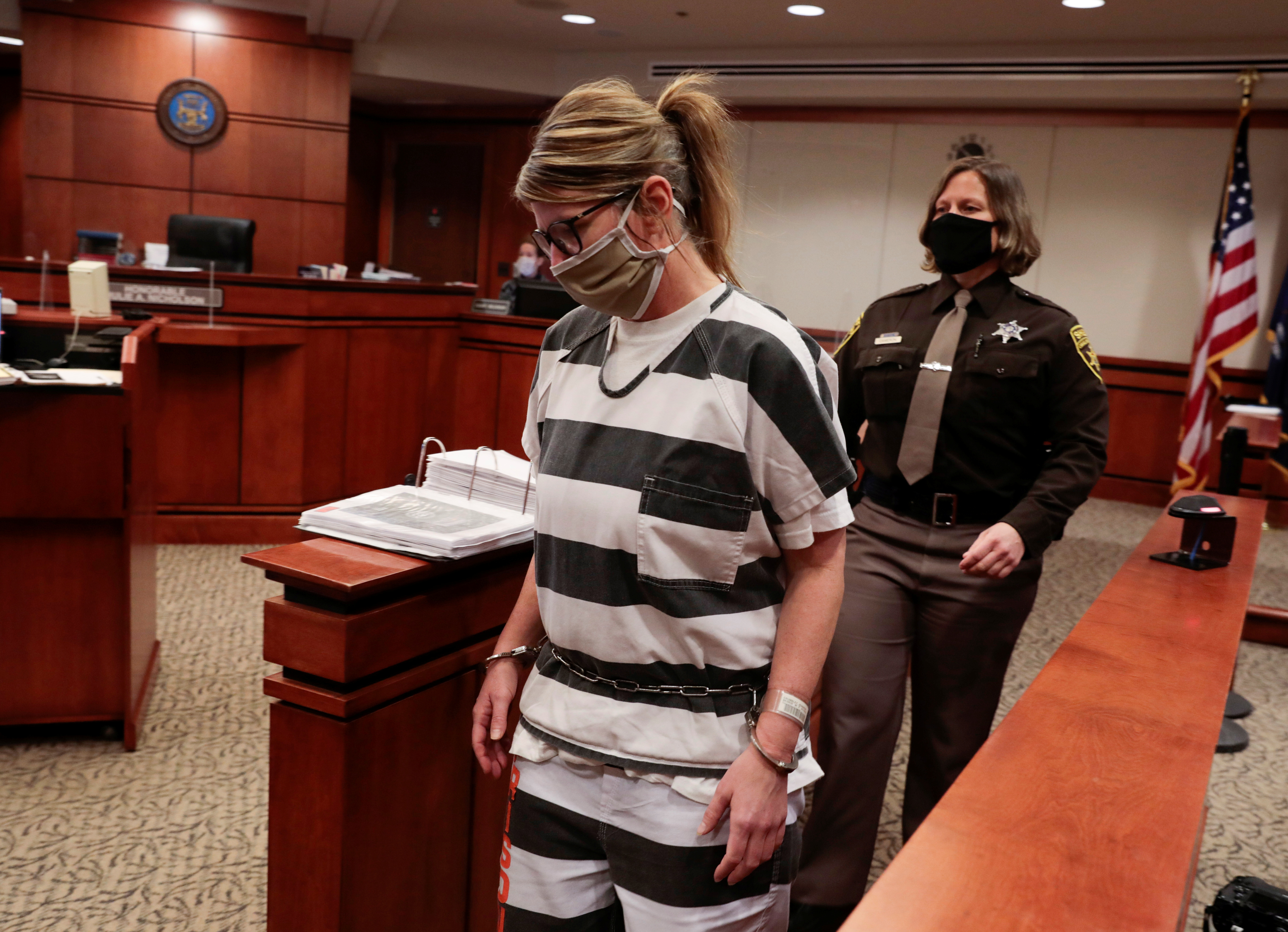
A Michigan court of appeals has ruled that the parents of a teenager responsible for a school shooting in the United States can be tried for involuntary manslaughter, paving the way for a groundbreaking case.
In a unanimous opinion, the three-judge appeals court called for a full trial against James and Jennifer Crumbley, whose son Ethan Crumbley opened fire at Oxford High School in 2021, killing four people and injuring seven.
The three judges – Christopher Murray, Michael Riordan and Christopher Yates – wrote in their decision that Ethan’s “acts were reasonably foreseeable”. They also determined that his parents’ “actions and inactions were inexorably intertwined” with the murders he committed.
The judges cited “visual evidence” that Ethan planned to commit violence with the gun that his parents had purchased for him, including drawings that depicted firearms, decapitated birds and human suffering.
Several illustrations had been drawn on a math worksheet on the day of the shooting with the words, “The thoughts won’t stop. Help me.”

“The morning of the shooting, EC [Ethan Crumbley] drew a picture of a body that appeared to have two bullet holes in the torso, apparently with blood streaming out of them,” Riordan told the court.
The judge noted that the gun depicted in the sketch resembled the firearm his parents “had very recently gifted to him”. His parents had been summoned to the school to discuss the picture hours before the shooting, but neither the school nor the parents demanded Ethan be brought home.
If not for the “defendants’ informed decision to leave EC at school, these murders would not have occurred that day”, the judges concluded.
Their decision is likely to test the limits of negligence and liability in situations in which minors commit violent crimes. Ethan, now 16, pleaded guilty in October to 24 state charges, including first-degree murder and “terrorism”.
He may be summoned to testify at his parents’ trial.

On November 26, 2021, James Crumbley legally bought a 9mm SIG Sauer handgun that Jennifer Crumbley would later describe as a “Christmas gift” for their then-15-year-old son.
The following Monday, Ethan was caught researching ammunition on his phone during class at Oxford High School near Detroit, where he was a sophomore. A school official left a voicemail about the incident on Jennifer’s phone.
Jennifer, who had taken Ethan to a shooting range the weekend prior, responded by initiating a text-message conversation with her son in which she told him: “I’m not mad. You have to learn not to get caught.”
That Friday, Ethan opened fire in the high school after packed the handgun and 50 rounds of ammunition in his backpack.
Prosecutors have maintained that James and Jennifer Crumbley shared responsibility for Ethan’s actions, writing in a court filing, “They created an environment in which their son’s violent tendencies flourished.”
The appeals court echoed that assessment, writing on Thursday, “a reasonable fact-finder could conclude” that the “defendants’ decision to purchase their mentally disturbed son a handgun” led to the shooting.
The court’s decision referenced instances in which Ethan described hallucinations to his parents in text messages, including the belief that he was being haunted by a demon. Ethan told a friend that his parents had brushed off his request to see a doctor, telling him instead to “suck it up”.
The judges also cited the parents’ “failure to properly secure the gun”.
An active shooter alert was sent to the parents on the day of the attack, prompting James Crumbley to go home and discover the firearm had been taken. He called emergency services a little more than half an hour after the attack to express concern that his son might be the shooter.

In the days after the shooting, prosecutors filed involuntary manslaughter charges against the parents, and law enforcement launched a manhunt to arrest them, ultimately discovering them in Detroit.
Lawyers for the parents have denied their clients are guilty of manslaughter. They are expected to request that the Michigan Supreme Court review the case.
“It was not foreseeable from the drawings on that [math] homework that he was going to later carry out the premeditated murders of those students,” defence lawyer Mariell Lehman previously told the court.
In Thursday’s decision, the appeals court acknowledged that it shared “the defendants’ concern about the potential for this decision to be applied in the future” to other parents whose children commit violent acts.
But it ultimately decided that the Crumbley case involved “uniquely troubling facts” that merited the consideration of a full jury trial.
“Whether a jury actually finds that causation has been proven after a full trial, where the record will almost surely be more expansive – including evidence produced by defendants – is an issue separate from what we decide today,” the judges wrote.







